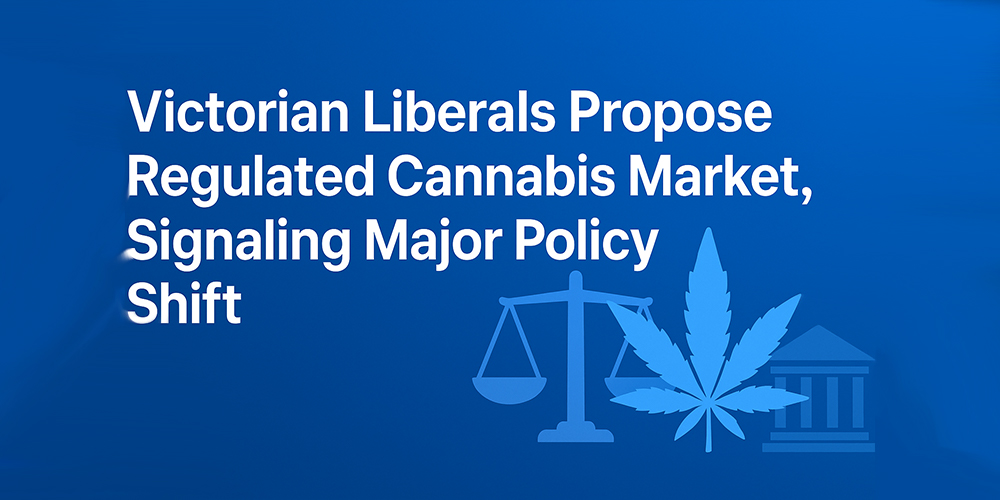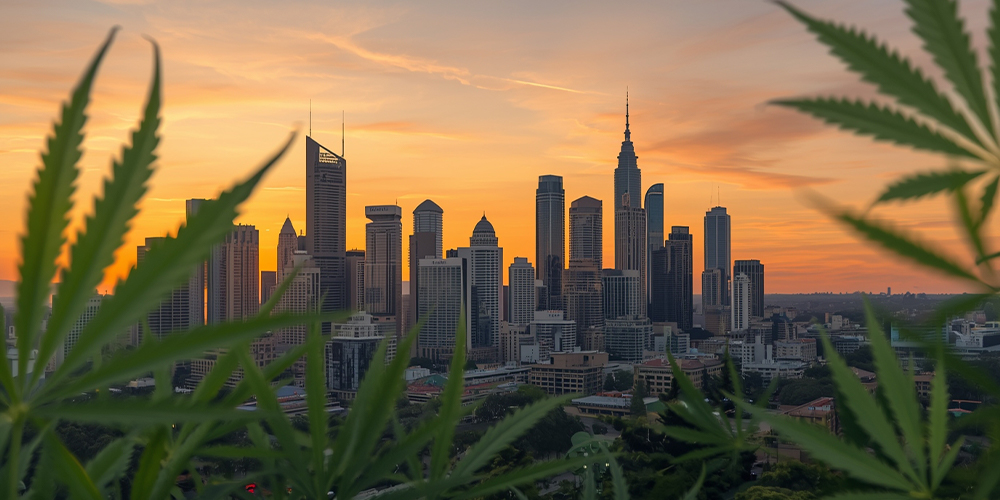
Home » Victorian Liberals Propose Regulated Cannabis Market, Signaling Major Policy Shift
Victorian Liberals Propose Regulated Cannabis Market, Signaling Major Policy Shift
Victoria’s Liberal Party is considering a bold new policy that could transform Australia’s cannabis landscape: treating marijuana like alcohol through a regulated, legal market. The proposal, raised at the party’s upcoming state council, reflects growing pressure to modernize cannabis laws in one of Australia’s most populous states.
A Bold Proposal Inside the Victorian Liberal Party

At the state council this week, a coalition of Victorian Liberal members will push for cannabis legalization under a regulated system, mirroring how alcohol is sold and taxed. If adopted, the motion would represent a striking shift for the party, historically aligned with tougher drug enforcement rather than reform.
The proposal is part of a broader policy package that also includes expanded parental leave entitlements and a push to roll back net zero climate commitments. However, cannabis reform is emerging as the standout issue, reflecting its rising importance in public policy debates.
The suggested model would allow adults to legally purchase cannabis products from licensed outlets while imposing strict limits on marketing, sales to minors, and impaired driving. Tax revenue from sales would likely be earmarked for health services and public education campaigns—similar to existing frameworks in North America.
Why This Matters Now
Cannabis reform has been gaining traction across Australia. Earlier this year, the ACT expanded its personal possession and cultivation laws, while Greens politicians at the federal level have introduced bills for nationwide legalization. Public sentiment is also shifting: recent surveys show that more than 50% of Australians support regulated cannabis markets, particularly if they reduce the harms associated with the illicit trade.
For the Victorian Liberals, backing such a move could be both risky and strategic. On one hand, it could alienate traditional conservative voters who favor prohibition. On the other, it could attract younger and more urban voters who increasingly view cannabis as no different from alcohol or tobacco in terms of regulation.
Economic and Social Implications
Legal cannabis represents a significant economic opportunity. If Victoria were to establish a regulated market, analysts estimate potential revenues in the hundreds of millions annually. Canada, for example, has generated more than CAD $4 billion in tax revenue since nationwide legalization in 2018.
Beyond dollars, legalization could also ease pressure on the justice system. Thousands of Victorians are charged each year with cannabis-related offenses, despite widespread use. Shifting from criminal penalties to regulation would redirect resources from policing to health services.
Public health experts argue that regulation also offers a safer framework for consumers. By mandating quality standards, potency labeling, and age restrictions, governments can reduce risks associated with contaminated or high-strength illicit products.
The Political Gamble
This proposal could mark a generational turning point for the Victorian Liberals. Traditionally, drug reform in Australia has been championed by progressive parties, with conservatives opposing or resisting changes. By stepping into the legalization debate, the Liberals risk internal division but could also outmaneuver political rivals who have dominated cannabis policy discussions.
It also raises questions about whether the federal Liberal Party would endorse or oppose the move. Without federal reforms, Victoria could face legal conflicts around import, export, and cross-border policing—issues that plagued Canada in the early years of legalization.
Looking Ahead
If the motion passes at the state council, the Victorian Liberals would become the first major conservative party in Australia to officially endorse cannabis legalization. That endorsement wouldn’t immediately change the law, but it would set the stage for a heated state election debate and possibly accelerate nationwide reform momentum.
Industry stakeholders, health advocates, and investors will be watching closely. If Victoria signals its readiness to regulate cannabis like alcohol, other states may quickly follow, creating a domino effect across the country.

